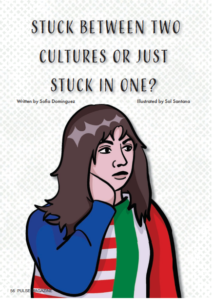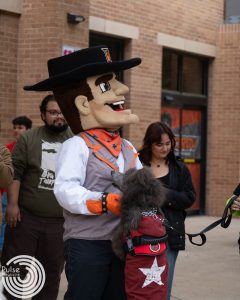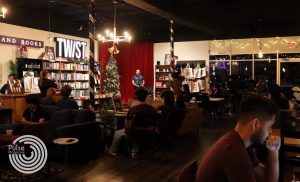The Haunted History of Halloween
Trick or Treat? As witches “ride” their brooms throughout the night, casting spells on the unaware, small children dressed as ghosts and ghouls go door to door, eager for some sweet treat. Maybe there will be a few teenagers doing their best to appear brave as they walk through a haunted house. For some, the night of Oct. 31 is a time to stay in and wrap themselves in a soft blanket as a scary movie plays on the television.
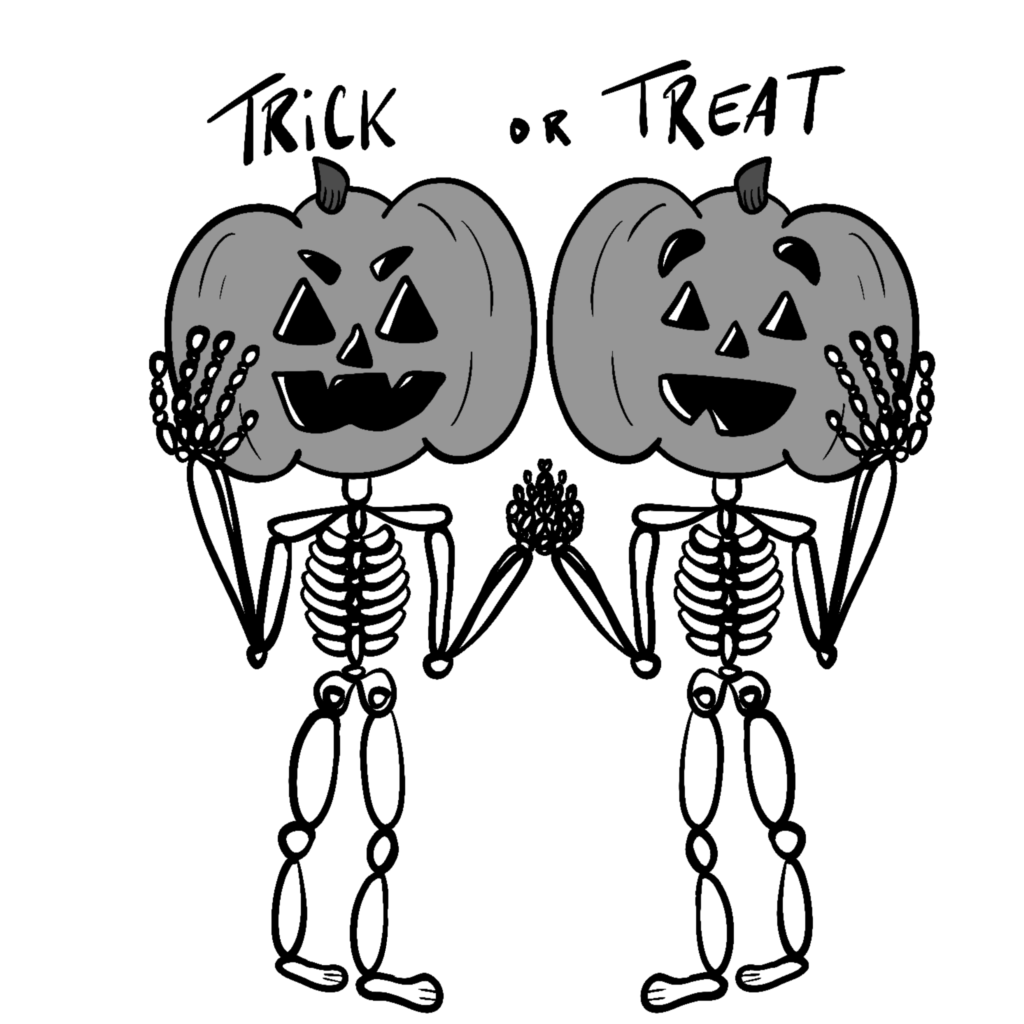
No matter how you decide to celebrate (or not celebrate), Halloween is a holiday that has been celebrated for millennia. But when did people begin celebrating Halloween and when did it evolve into the holiday many are familiar with today?
Well, the story begins years ago. When exactly? We do not know. But the holiday was very different from the one we are familiar with today. It started with the Celtics and the Samhain (pronounced SAH-win) festival in Europe. According to the World History Encyclopedia, Samhain was the most important part of the four quarterly fire festivals. It was a time when people gathered around a community fire and celebrated the end of the harvest season for three days and three nights, sometimes longer. Samhain itself started on Oct. 31 and ended on Nov.1
According to Joshua Mark, who wrote the article, the Celts believed that the barrier between worlds was thinner during Samhain and people’s ancestors and monsters could visit them during this time.
However, when the Romans conquered Celtic territory, certain Roman festivals were combined with the Celtic Samhain. The first was Feralia, which took place in late October and was a time when the Romans commemorated the passing of their departed.
Another festival was a celebration of their goddess Pomona, the Roman goddess of fruit and trees. Her symbol was the apple and it is speculated that this is where the tradition of bobbing for apples and eating candy apples on Halloween originated.
Over time, as Christianity spread, they stopped celebrating Samhain. The Library of Congress’ database shows that by the eighth century, Pope Gregory III made Nov. 1 All Saints Day or All-hallows. The holiday honors all the saints and it incorporated several Samhain traditions. The night before All-Hallows, the night when the traditional Samhain festival would begin was called All-Hallows Eve. As the years went on the name evolved into Halloween.
The newly Christianized festival signaled a time for a vigil, prayer, and fasting in honor of their saints and the glory of Christ. Many Samhain traditions were incorporated into this new incarnation of the holiday. Lighting bonfires continued during this time, though the Catholic church viewed it as honoring their saints instead of the pagan gods prior. The practice of “souling” continued as well; where the more impoverished citizens would go knocking door-to-door to ask for some “soul-cake”. This is where the tradition of trick-or-treating began.
Halloween was originally a European tradition but by the second half of the 19th century, the holiday had reached America. The University of Albany traces the origins of American Halloween to the European immigrants who came during that time, such as the Irish who left Ireland in 1846 because of the potato famine.
Traditions such as pumpkin carving and wearing costumes during Halloween moved over and soon became popular in America. Soon, the traditions and practices of Halloween shifted and evolved to adapt to the changing times. So despite its religious beginnings, by the late 1800s, the holiday became a more community-centered event and during the early 20th century, Halloween was considered a secular holiday.
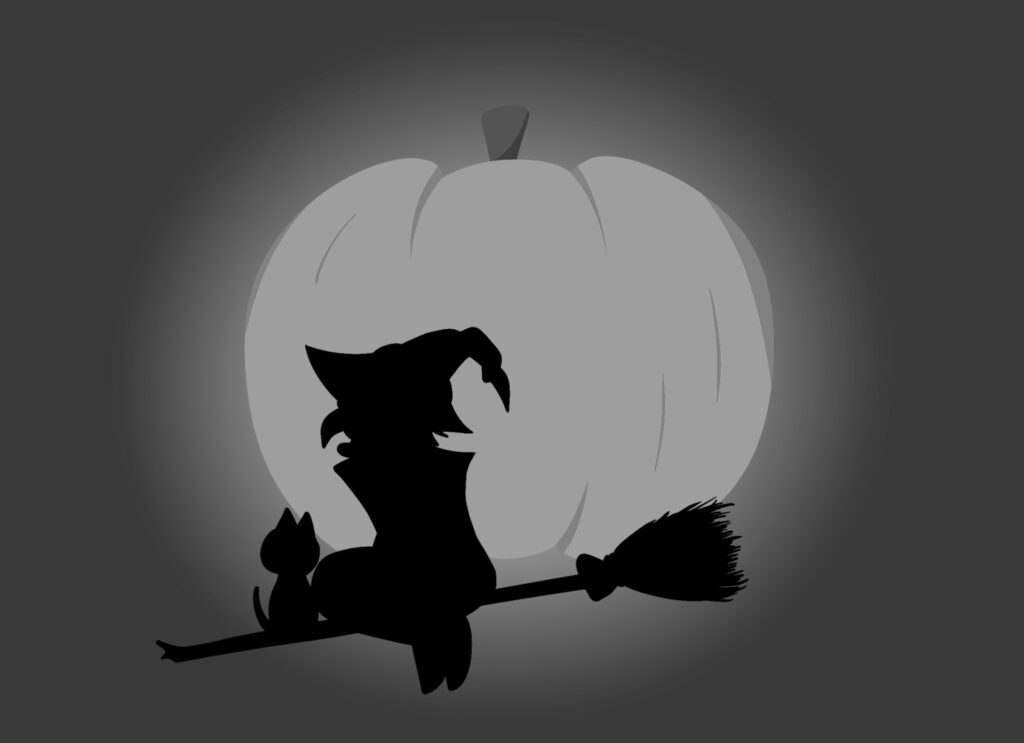
Now, in the 21st century, Halloween has taken on its traits and traditions. Two years after Covid-19 and lockdowns that prevented people from celebrating Halloween, how are people at the University of Texas Rio Grande Valley planning to celebrate Halloween this year?
Candance Perkins, a UTRGV Dining Hall staff member, said, “I was actually hoping to throw a Halloween party this year. Just the weekend before, I went to a couple of stores around and bought some really cheap fun Halloween decorations.”
“So we’re actually doing an undead tavern theme for those super cool lots of animals and feet little plastic cages, little graveyards and you come in and then of course, like being Sculley, modems and everything, not for a lot of people, but just for have some fun for a couple of friends,” Perkins added.
Tatiana Mort, a student majoring in Marketing and minoring in Graphic Design, said, “so my family throws a party every Halloween. So we plan to like, before the party starts we are gonna carve pumpkins and have a contest. Then wait for all of our relatives to come and just help”
Wearing costumes is another long-standing tradition. Mort and Sam (who did not feel comfortable giving her last name), plan to wear costumes for Halloween. Mort said she plans to dress up as a mad scientist while Sam has a few options.
“I was thinking maybe Sailor Mars from Sailor Moon. Or maybe like, just like a Soul Reaper from Bleach is gonna be so cool,” Sam said.
Halloween has a long history filled with treats and tricks. While not everyone may celebrate this holiday, there is still something to be said about the feeling of community and a night of fun and mischief.
Remember, that during this time of celebration, with COVID-19 and rising cases of the flu, it is important to take proper precautions against getting sick. The New York Health Department published some suggestions to make Halloween night both fun and safe.
Simple precautions can be taken, such as being prepared with hand sanitizer while out trick-or-treating. Keeping hands clean and avoiding touching one’s face is one of the ways people can avoid getting sick. Getting against COVID-19 is also a great way to also enjoy a safer Halloween and adds an extra layer of precaution as people are out celebrating with friends and family.
PULSE wishes everyone a happy Halloween!



